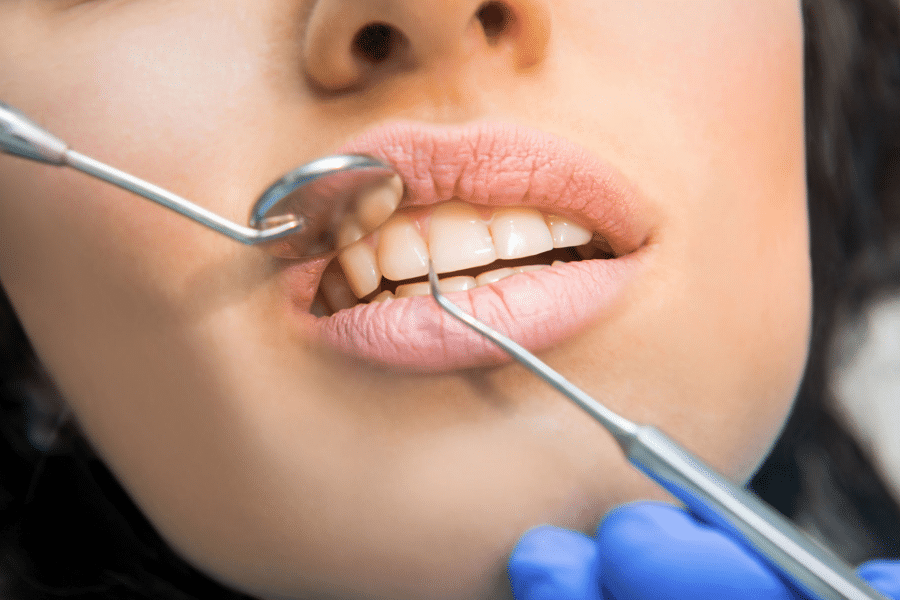Bleeding gums should be a cause for concern. If your gums are bleeding during your at-home oral care routine, you may have the start of serious gum problems. Although bleeding gums are common, it is never healthy to see bleeding when you brush or floss.
If you are noticing mild or moderate gum bleeding, you may be wondering why. There are several reasons why gums bleed, all of which are important to know so you can reduce your risks.
Causes of Bleeding Gums
Gum Disease
If you notice red or puffy gums that bleed when you brush, it may be a sign that you have gingivitis. Gingivitis is the earliest form of gum disease that is caused by a build-up of the bacteria that live in plaque, the soft film that builds around your teeth and gums.
If left untreated, gingivitis can lead to a more serious form of gum disease called periodontitis. Periodontitis is a gum infection that causes the breakdown of your gums and jaw that is also linked to health issues.
Pregnancy
Hormonal changes during pregnancy can alter how your body responds to the bacteria that cause gum disease. These changes can often cause pregnant women to notice swollen gums that bleed more easily. Often called pregnancy gingivitis, this condition affects up to 70% of pregnant women.
Medications
Several types of medications can increase your risk for gum inflammation and bleeding. Blood thinners are a common cause of more noticeable bleeding when brushing and flossing. Other medications such as blood pressure medications that are calcium channel blockers, anti-seizure medications, and certain immunosuppressive drugs can also contribute to gum changes.
Diabetes
If you have diabetes that is not well-controlled, poor blood sugar levels can experience gum bleeding because of an increased risk of gum disease. Even more importantly, gum inflammation can also upset your body’s defense system, which can affect your sugar control.
In other words, diabetes is strongly linked to gum disease.
Your Dental Care Routine
How often you brush and floss can affect your gums. If you have not flossed recently, the bacteria gathering between your teeth can cause gingivitis, which makes your gums bleed. Brushing only once a day can also increase your risk.
Using a medium or firm toothbrush or brushing too hard can also result in bleeding gums due to not only trauma but also because the bristles of the toothbrush do not reach under your gum line properly.
Preventing Bleeding Gums
Brushing and flossing properly can help remove the bacteria and prevent gum bleeding. Using fluoride toothpaste with a soft-bristled toothbrush and routine flossing can keep bacteria from building around your gums and in-between your teeth.
Having regular dental appointments and cleanings will also help keep your gums healthy. Make sure that you talk to your dentist or dental hygienist about all of your medications and health issues since they can sometimes affect your gums.
The good news is that usually, your gum bleeding can subside with a dental cleaning and proper dental home care. If you are experiencing bleeding gums, call your dentist today to schedule an appointment for an evaluation and cleaning.
